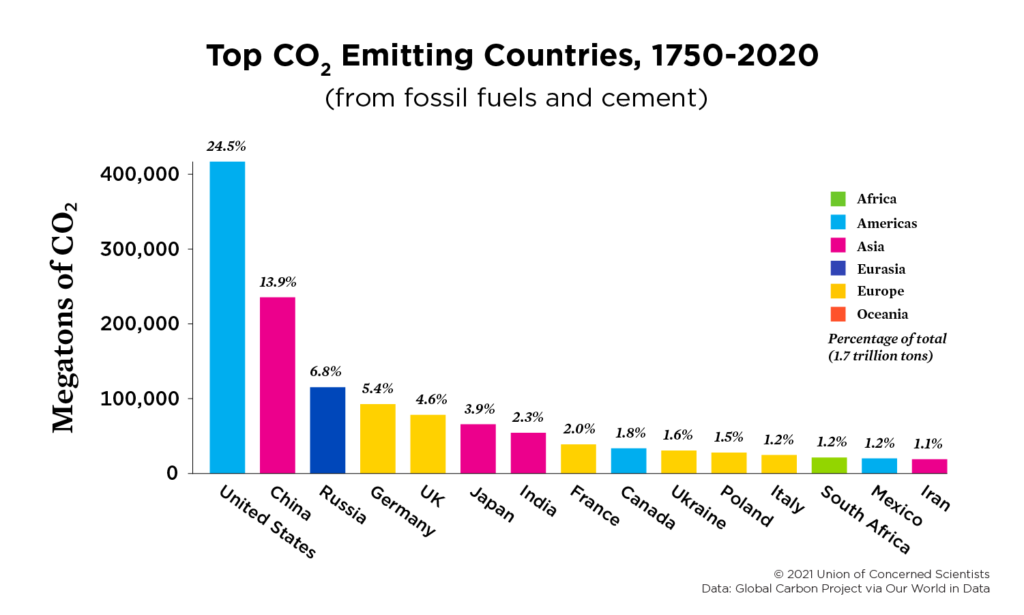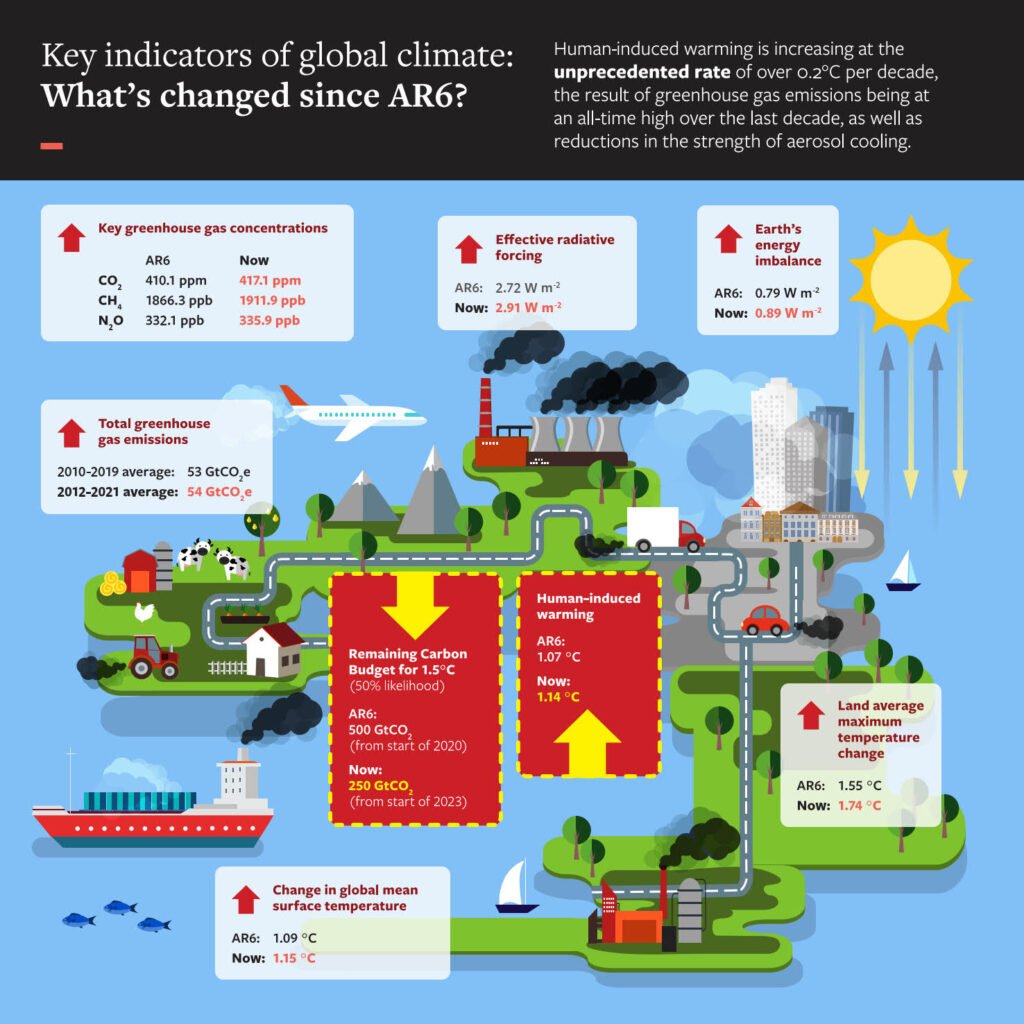Greenhouse gas (GHG) emissions have been determined to be “at an all-time high,” with human activity releasing the equivalent of 54 gigatonnes of carbon dioxide into the atmosphere per year on average over the previous decade.

In an examination, a committee of 50 top scientists concluded that human-caused global warming had continued at a “unprecedented rate” since the previous comprehensive assessment of the climate system two years ago.
Human-induced warming, mostly caused by fossil fuel use, reached an average of 1.14 degrees Celsius over pre-industrial levels in the most recent decade (2013 to 2022), up from 1.07 degrees Celsius between 2010 and 2019. It is now increasing at a pace of over 0.2 degrees Celsius per decade.

The IPCC in 2020 had calculated the carbon budget (an estimate of how much carbon that can be released into the atmosphere to give a 50 per cent chance of keeping global temperature rise within 1.5 degrees Celsius) to be around 500 gigatonnes but by the start of 2023, the figure was roughly halved to 250 gigatonnes.

In a project sponsored by the University of Leeds in the United Kingdom, scientists have created an open data, open research platform called the Indicators of Global Climate Change. Its website will be updated annually with information on important climate indicators since policymakers, climate negotiators, and civil society groups require access to the most recent and strong scientific evidence for decision-making.
We no longer have time on our side. It is critical to have access to current information for immediate adaptation.
Reference- IPCC website, National Geographic, NOAA, Earth System Science Data, University of Leeds website






